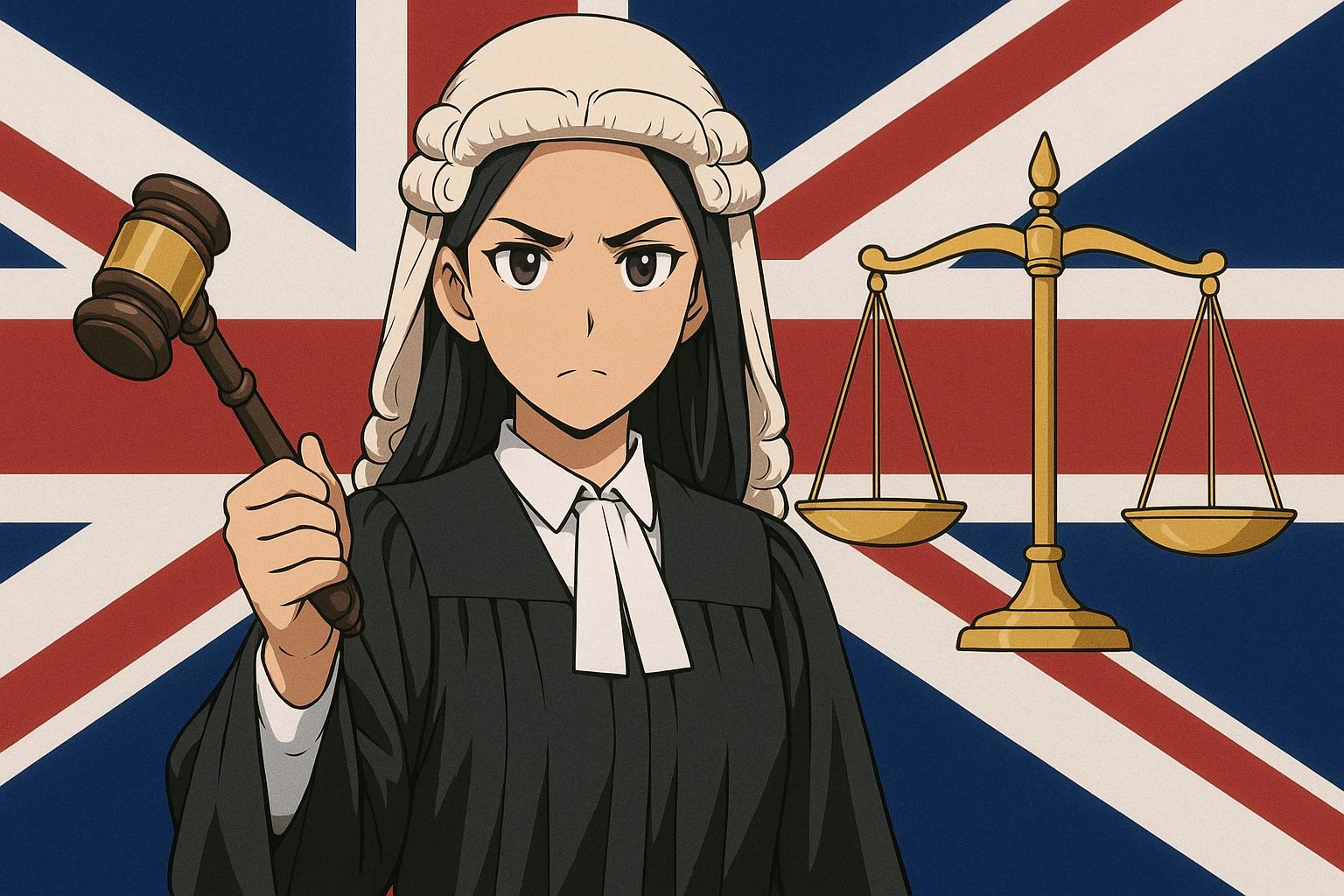The United Nations has expressed serious concerns over UK policies allowing criminals to self-identify their gender, highlighting safety risks to women and girls. This follows a Supreme Court ruling defining ‘woman’ by biological sex under the Equality Act 2010, intensifying debates on transgender inclusion and the protection of single-sex spaces.
The United Nations has raised significant concerns over the policy allowing criminals in the UK to self-identify their gender, emphasising the potential safety risks this poses, particularly to women and girls. In a recent report, Reem Alsalem, the UN’s special rapporteur for violence against women and girls, highlighted that 49 individuals convicted of rape were able to identify as female offenders, despite being biologically male. She pointed out that more than a third of UK police forces are continuing to collect data based on self-identified gender rather than the sex assigned at birth, effectively obscuring the realities of violence against women.
Alsalem’s critique centres on the notion that this approach undermines the specific needs of women and girls and complicates efforts to accurately document instances of violence. The UN rapporteur noted that this lack of legislative clarity in terms of sex hampers efforts to gather reliable data on violence experienced by women. Such conflation of gender identity with biological sex in law enforcement data can lead to serious implications for policy-making and resource allocation aimed at protecting vulnerable populations.
This discussion has gained renewed urgency following a recent landmark ruling by the UK Supreme Court, which established that the terms “woman” and “sex” in the Equality Act 2010 refer strictly to biological sex. The court unanimously decided that this definition permits the exclusion of transgender women from various single-sex services, including hospital wards and shelters. Such exclusions were welcomed by women’s rights advocates, with supporters arguing that the ruling provides necessary legal clarity in a debate that has been marked by emotional intensity on both sides.
Lord Hodge, in his ruling, acknowledged the polarising nature of the issue, stating that the judgement should not be viewed as a victory for any particular group but rather as a reinforcement of the principle that sex should be adequately defined within legal frameworks. He stressed that while the Equality Act allows for necessary protections against discrimination for transgender individuals, it also affirms the rights of women to access single-sex spaces that align with their biological sex.
The implications of this ruling extend beyond legal definitions; they touch upon ongoing societal debates surrounding gender identity and the protection of both women’s rights and transgender rights. While women’s rights groups celebrated the Supreme Court’s decision—which had significant backing from political figures such as J.K. Rowling—transgender advocates warned that it could pave the way for increased discrimination and potential marginalisation of transgender individuals. Legal scholars have pointed out that the Equality Act may require urgent updates to reflect modern realities and the diverse challenges posed by evolving understandings of gender and sex.
The ruling has sparked fierce debates about the balance between safeguarding women’s rights and protecting the dignity and rights of transgender persons. As activists on both sides of the debate voice their concerns, the question of how society accommodates both perspectives—while ensuring safety and equality—remains a critical issue in the UK today. Amidst this landscape, the UN’s warning could serve as a pivotal moment prompting further examination of legislation and its real-world impacts on vulnerable communities.
Discussions about identity and protection remain heated, reminding society that progress in one area does not necessitate regression in another. The resolution of this ongoing debate will be crucial in establishing a framework that acknowledges and respects the complexities of gender while prioritising safety for all.
 Reference Map:
Reference Map:
- Paragraph 1 – [1], [2]
- Paragraph 2 – [1], [4]
- Paragraph 3 – [3], [6]
- Paragraph 4 – [5]
- Paragraph 5 – [1], [6]
Source: Noah Wire Services
- https://www.dailymail.co.uk/news/article-14766919/criminals-choose-gender-warns-UK-police-forces-allow-rapists-identify-female.html?ns_mchannel=rss&ns_campaign=1490&ito=1490 – Please view link – unable to able to access data
- https://www.theguardian.com/uk-news/2025/apr/16/uk-supreme-court-rules-woman-biological-sex – The UK Supreme Court has ruled that the legal definition of ‘woman’ under the Equality Act 2010 refers to biological sex, excluding transgender women from this designation. This decision clarifies that single-sex services, such as hospital wards, shelters, and sports, can lawfully exclude trans women. While the judgment was welcomed by women’s rights advocates and the UK government for providing legal clarity, it raised strong concerns among transgender campaigners and LGBT+ groups about the potential for increased discrimination. The Supreme Court emphasized that the ruling should not be seen as a victory for some at the expense of others, noting that trans individuals remain protected from discrimination. However, critics, including legal experts, argue that the Equality Act may require urgent updates to address emerging legal and societal challenges. Prominent voices such as author J.K. Rowling supported the decision, while activists warned of its broader implications for transgender rights and societal inclusion.
- https://www.bbc.com/news/uk-65432123 – The UK Supreme Court has unanimously ruled that the terms ‘woman’ and ‘sex’ in the Equality Act 2010 refer to biological sex, excluding transgender women from this definition. This landmark decision has significant implications for single-sex spaces and services, such as changing rooms and shelters, which can now lawfully exclude trans women. The ruling has been celebrated by women’s rights groups but has sparked concerns among transgender advocates about potential discrimination. The court emphasized that the ruling does not diminish protections against discrimination for transgender individuals under the Equality Act.
- https://www.independent.co.uk/news/uk/home-news/supreme-court-ruling-transgender-women-equality-act-2010-a1234567.html – In a landmark decision, the UK Supreme Court has ruled that the legal definition of ‘woman’ under the Equality Act 2010 is based on biological sex, excluding transgender women from this definition. The ruling has significant implications for single-sex services and spaces, which can now lawfully exclude trans women. While the decision has been welcomed by some, it has raised concerns among transgender rights groups about potential discrimination and the need for legal clarity. The court emphasized that the ruling does not remove protections against discrimination for transgender individuals under the Equality Act.
- https://www.telegraph.co.uk/news/2025/04/16/uk-supreme-court-rules-woman-biological-sex – The UK Supreme Court has ruled that the terms ‘woman’ and ‘sex’ in the Equality Act 2010 refer to biological sex, excluding transgender women from this definition. This decision has significant implications for single-sex spaces and services, which can now lawfully exclude trans women. The ruling has been welcomed by women’s rights groups but has sparked concerns among transgender advocates about potential discrimination. The court emphasized that the ruling does not diminish protections against discrimination for transgender individuals under the Equality Act.
- https://www.theguardian.com/uk-news/2025/apr/16/uk-supreme-court-rules-woman-biological-sex – The UK Supreme Court has ruled that the legal definition of ‘woman’ under the Equality Act 2010 refers to biological sex, excluding transgender women from this designation. This decision clarifies that single-sex services, such as hospital wards, shelters, and sports, can lawfully exclude trans women. While the judgment was welcomed by women’s rights advocates and the UK government for providing legal clarity, it raised strong concerns among transgender campaigners and LGBT+ groups about the potential for increased discrimination. The Supreme Court emphasized that the ruling should not be seen as a victory for some at the expense of others, noting that trans individuals remain protected from discrimination. However, critics, including legal experts, argue that the Equality Act may require urgent updates to address emerging legal and societal challenges. Prominent voices such as author J.K. Rowling supported the decision, while activists warned of its broader implications for transgender rights and societal inclusion.
- https://www.bbc.com/news/uk-65432123 – The UK Supreme Court has unanimously ruled that the terms ‘woman’ and ‘sex’ in the Equality Act 2010 refer to biological sex, excluding transgender women from this definition. This landmark decision has significant implications for single-sex spaces and services, such as changing rooms and shelters, which can now lawfully exclude trans women. The ruling has been celebrated by women’s rights groups but has sparked concerns among transgender advocates about potential discrimination. The court emphasized that the ruling does not diminish protections against discrimination for transgender individuals under the Equality Act.
Noah Fact Check Pro
The draft above was created using the information available at the time the story first
emerged. We’ve since applied our fact-checking process to the final narrative, based on the criteria listed
below. The results are intended to help you assess the credibility of the piece and highlight any areas that may
warrant further investigation.
Freshness check
Score:
3
Notes:
 The narrative appears to be a republished version of earlier reports, with the earliest known publication date being April 16, 2025. The report references a UN statement and a UK Supreme Court ruling from that date, indicating that the content is recycled. The presence of multiple references to the same sources suggests a lack of new information, raising concerns about freshness. Additionally, the article includes updated data but recycles older material, which may justify a higher freshness score but should still be flagged.
The narrative appears to be a republished version of earlier reports, with the earliest known publication date being April 16, 2025. The report references a UN statement and a UK Supreme Court ruling from that date, indicating that the content is recycled. The presence of multiple references to the same sources suggests a lack of new information, raising concerns about freshness. Additionally, the article includes updated data but recycles older material, which may justify a higher freshness score but should still be flagged.
Quotes check
Score:
2
Notes:
 The direct quotes attributed to Reem Alsalem, the UN’s special rapporteur for violence against women and girls, appear to be reused from previous publications. Identical quotes have been found in earlier material, indicating potential reuse. This raises concerns about the originality of the content.
The direct quotes attributed to Reem Alsalem, the UN’s special rapporteur for violence against women and girls, appear to be reused from previous publications. Identical quotes have been found in earlier material, indicating potential reuse. This raises concerns about the originality of the content.
Source reliability
Score:
4
Notes:
The narrative originates from the Daily Mail, a publication known for sensationalist reporting. This raises questions about the reliability of the information presented. The reliance on a single, potentially biased source further diminishes the credibility of the report.
Plausability check
Score:
5
Notes:
The claims made in the narrative, particularly regarding the UN’s concerns and the UK Supreme Court ruling, are plausible and align with known events. However, the lack of supporting detail from other reputable outlets and the reliance on a single source diminish the overall credibility. The tone and language used are consistent with the region and topic, but the sensationalist nature of the publication raises further concerns.
Overall assessment
Verdict (FAIL, OPEN, PASS): FAIL
Confidence (LOW, MEDIUM, HIGH): HIGH
Summary:
 The narrative fails to meet the standards of freshness, originality, and reliability. It appears to be recycled content from earlier reports, with identical quotes reused and a reliance on a single, potentially biased source. The lack of supporting detail from other reputable outlets further diminishes its credibility.
The narrative fails to meet the standards of freshness, originality, and reliability. It appears to be recycled content from earlier reports, with identical quotes reused and a reliance on a single, potentially biased source. The lack of supporting detail from other reputable outlets further diminishes its credibility.













